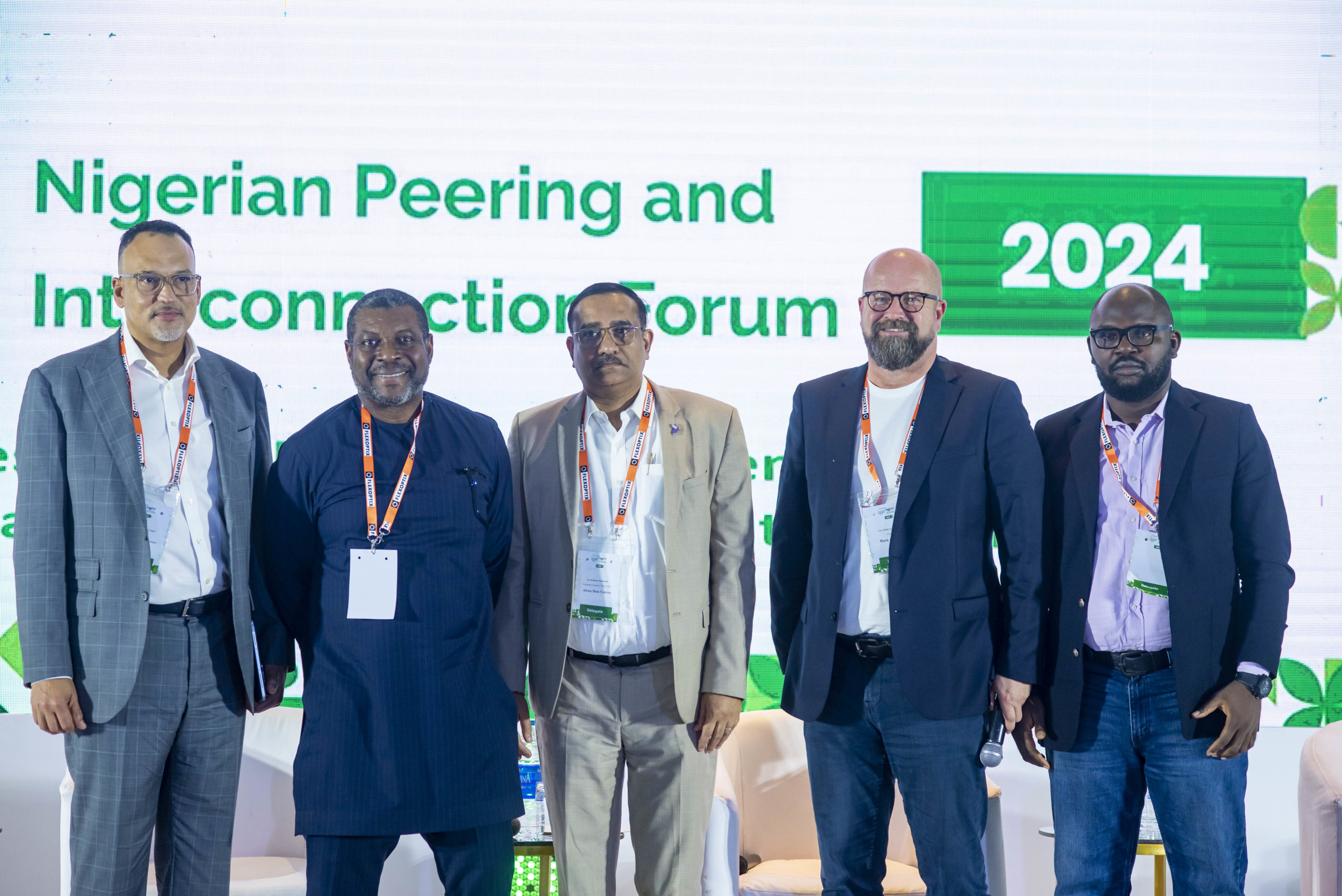Day 2 of the conference kicked off with an electrifying atmosphere as 149 on-site participants and 23 virtual attendees gathered for the first plenary session, Building Resilience and Collaboration: Addressing Submarine Cables. The panel featured an esteemed lineup of industry leaders: Mark Tinka (MD, Transmission CO), Fernando Fernandez ( CEO of Telcables by Angola Cables), Slawomir Cieslinski (Director, Business Development, WIOCC Group), Gbenga Adegbiji ( CEO, GENISERVE), and Adesiyan Omololu (Head, Network Planning, Transmission and IP Network, MainOne).
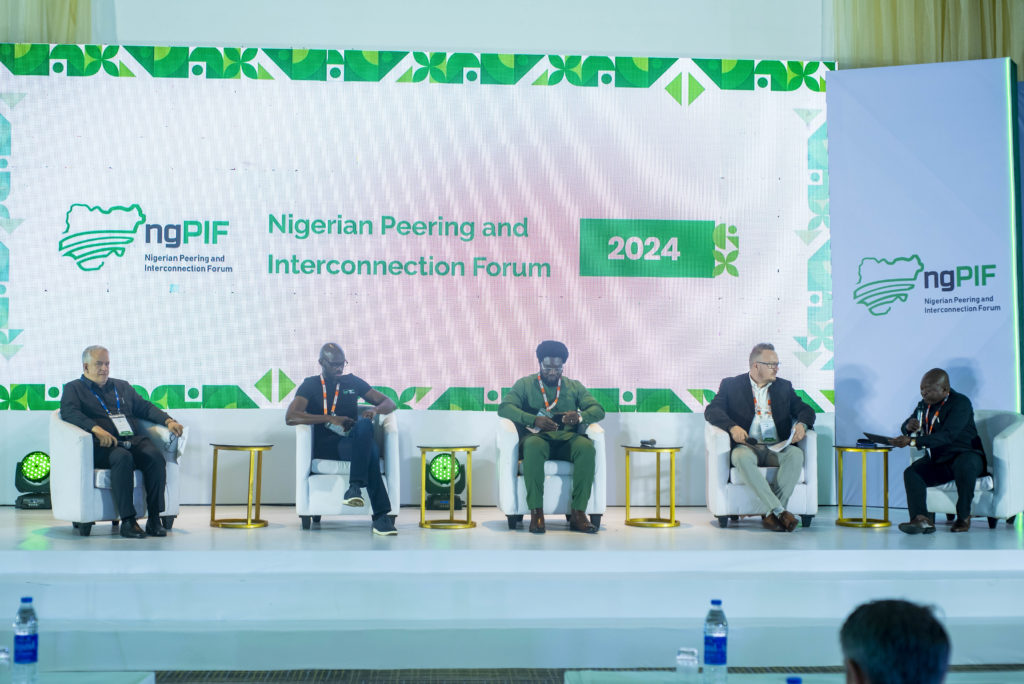
Moderated by Gbenga Adegbiji, the session dove deep into the pressing issues surrounding Africa’s submarine cable infrastructure. When asked about readiness for the next potential outage, Fernando Fernandez painted a stark picture of the challenges facing Africa’s cable networks. He highlighted a troubling lack of collaboration among operators, often driven by a focus on short-term profits rather than long-term stability. This lack of redundancy puts critical regions like West Africa at significant risk, especially in light of recent cable disruptions that had substantial economic repercussions in countries like South Africa.
The discussion quickly shifted to solutions, emphasizing the need for increased government involvement to safeguard vital cable routes. However, the complex interplay between private and public interests complicates this task. To enhance resilience, panelists discussed the potential of establishing “ring protection”—a network of redundant cables—but acknowledged that such initiatives require strong partnerships and improved cybersecurity measures to defend against digital threats.
The key recommendations that emerged from this dynamic discussion included:
- Standardize Crisis Protocols: Create guidelines to prevent unfair price increases during outages.
- Enhance Connectivity: Strengthen connections between cable landing stations and data centers to expedite responses in emergencies.
- Conduct Root Cause Analysis (RCA): After incidents, document lessons learned to prevent future issues.
- Invest in Infrastructure: Build systems that ensure quicker and more reliable network recovery.
Following a lively coffee break, participants returned for the next session, Building Nigeria’s Digital Backbone: Transit Providers and Infracos in Focus, moderated by Dewole Ajao, Global Network Acquisition, and Google. Panelists, including Adeyemi Olaosebikan from Airtel, discussed Nigeria’s strategic position as a gateway for landlocked African nations while also addressing the challenges that hinder this potential.
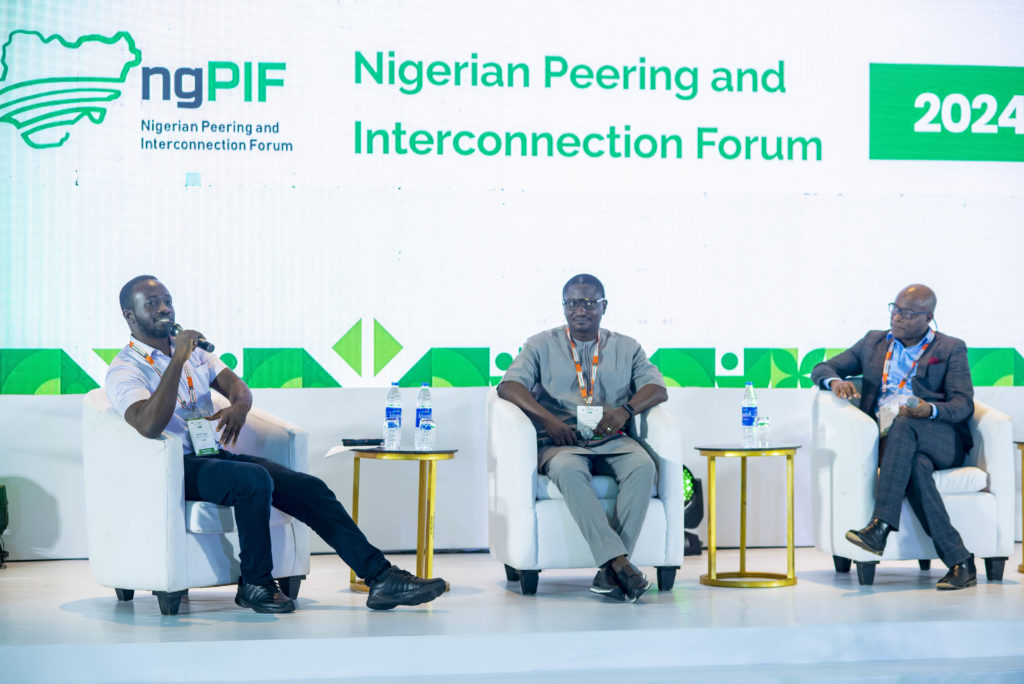
Key challenges highlighted included:
- Demand and Monetization: While southern Nigeria boasts strong fiber coverage, monetizing infrastructure in northern and cross-border regions is challenging due to low demand and high operational costs.
- Right of Way (RoW) Fees: The high cost of RoW fees continues to stifle expansion efforts, although some northern states are beginning to reduce these fees to attract more ISPs.
- Government Engagement: A greater adoption of digital services by the government—ranging from e-health to e-education—could drive local demand, thereby making further infrastructure investments justifiable.
The panel recommended several strategic actions:
- Stimulate Demand: Encourage government usage of data services to increase the value of existing infrastructure.
- Reduce RoW Fees: Expand fee reductions to facilitate network growth.
- Foster Regional Partnerships: Strengthen collaborations with neighboring countries to build a resilient, interconnected network across West and Central Africa.
After a refreshing lunch break, the energy in the room surged again as participants gathered for an insightful session led by Johnson Agogbua (MD, Kasi Cloud), featuring Lars Johannisson (CEO, Rack Centre), Dr. Krishnan Ranganath (Regional Executive, West Africa -Africa Data Centres), Dr. Ayotunde Coker (CEO, Open Access Data Centres), and Oluwasayo Oshadami (GM, Technical Solutions MainOne). Johnson set the stage, sparking a discussion on public and private clouds in West Africa.
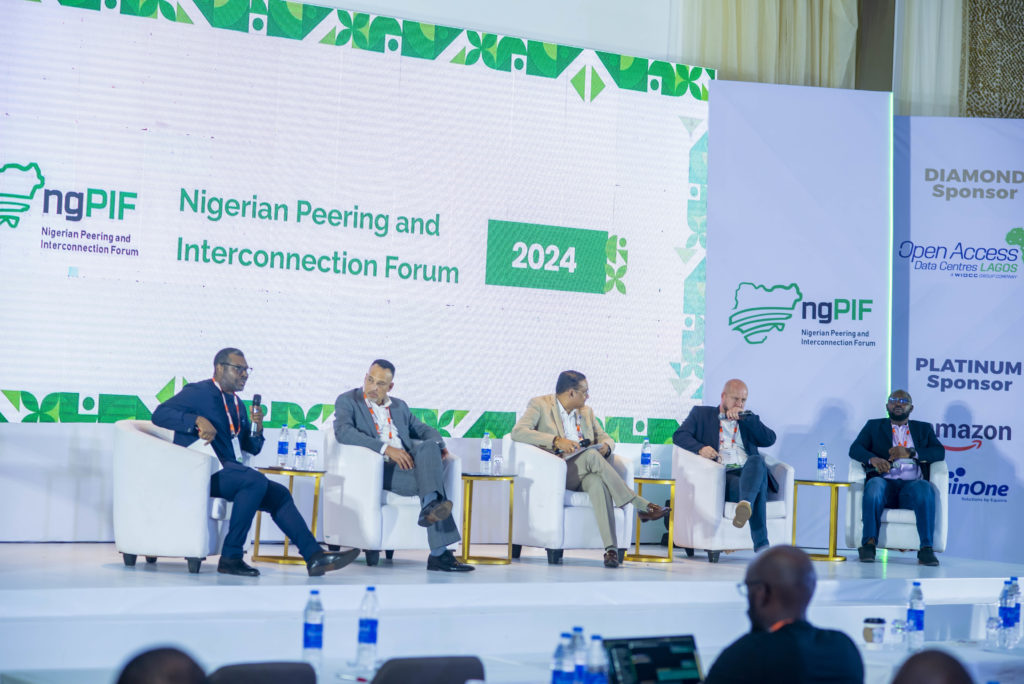
As enterprises shift from traditional setups to the cloud, many are adopting a hybrid model. Dr. Ayotunde Coker described this approach as “moving from cloud to co-location,” a balanced model that uses public cloud services for less sensitive data while keeping critical information on private clouds or on-premises. He emphasized that this hybrid approach “blends security and efficiency in an evolving digital landscape.”
Data residency regulations pose a major challenge to cloud adoption. Many countries in the region are instituting policies to ensure data stays within national borders. As Dr. Coker noted, regulatory bodies often ask, “Where is your data actually going to be held?” These policies, while beneficial for data security, can slow the adoption of global cloud solutions. Dr. Krish pointed out that data localization increases demand for locally hosted services, fostering a more secure environment for businesses even as they navigate compliance costs.
Economic instability across West Africa also affects cloud adoption, as currency volatility complicates investment for enterprises. Dr. Krish observed that these conditions pressure businesses to balance growth with financial stability. Despite these hurdles, the region is seeing continuous investment in data centers and cloud infrastructure.
Lars from Rack Centre shared a compelling vision of faster cloudification across Africa, highlighting the need for collaboration. He stated, “This won’t happen unless all things come in line… that’s the only way we’re going to do it and drive this forward.” By uniting private enterprises, public sectors, and tech infrastructure providers, Nigeria could accelerate its digital transformation journey, making cloud services more accessible.
An essential part of this vision involves expanding broadband access to underserved regions. Lars emphasized the potential of mobile broadband, saying, “Many people are sitting on a 2G subscription,” effectively excluding them from the cloud ecosystem. Extending broadband could empower more individuals and businesses, fueling both economic growth and digital inclusion.
The closing moments of ngPIF 2024 were nothing short of exhilarating! The event culminated in a vibrant ceremony honoring our esteemed sponsors, insightful speakers, and dedicated program committee members. Their invaluable contributions and unwavering support were recognized with heartfelt accolades, creating a warm atmosphere of gratitude and appreciation.
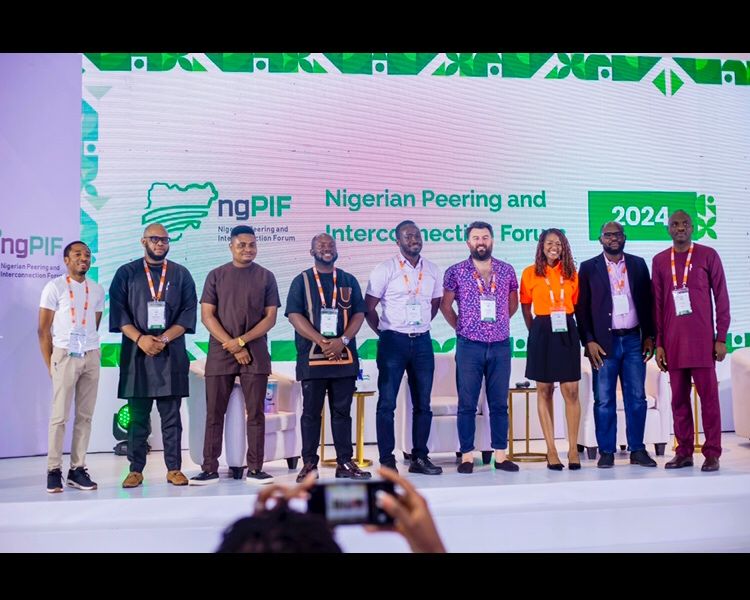
Adding a layer of excitement to the proceedings, a thrilling raffle draw captured the audience’s attention. Attendees eagerly watched as the prize—a cutting-edge Meta Quest 3, generously sponsored by Meta—was up for grabs. The air was thick with anticipation as Portia Rabonda of Flexoptix was announced as the winner, her radiant smile reflecting the excitement that filled the room. The applause was thunderous, celebrating not just her win, but the spirit of community and collaboration that defined the event.
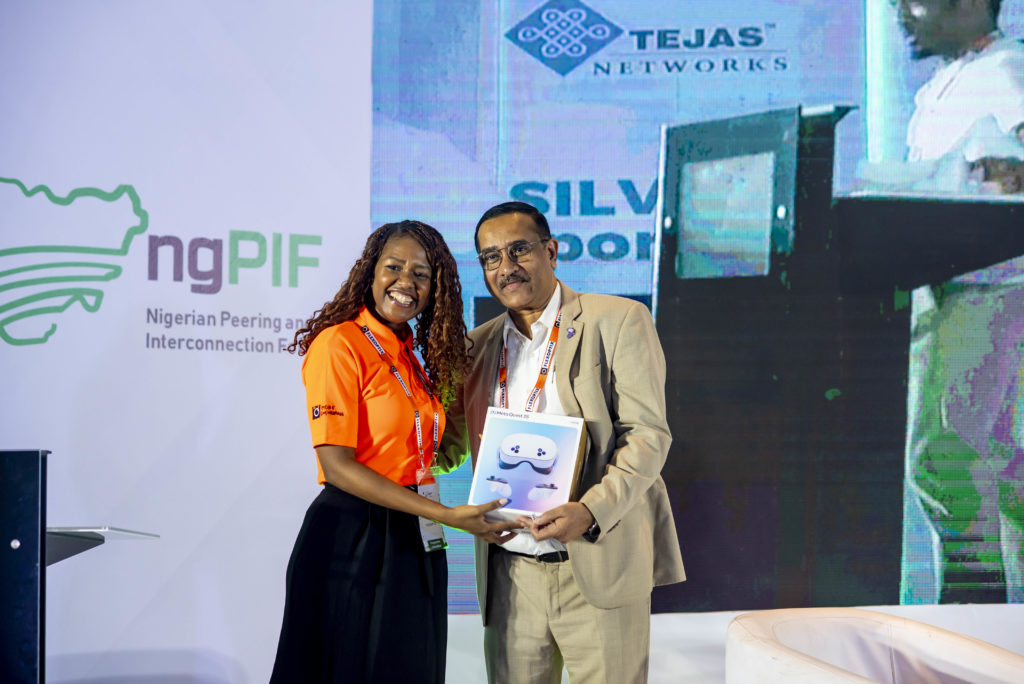
As we bid farewell to ngPIF 2024, participants left not just with accolades and prizes but also with a wealth of knowledge and inspiration. The event fostered meaningful connections and sparked insightful discussions, laying the groundwork for future collaborations in our ever-evolving industry. We eagerly anticipate reconvening next year, ready to explore new frontiers and tackle the challenges ahead!
